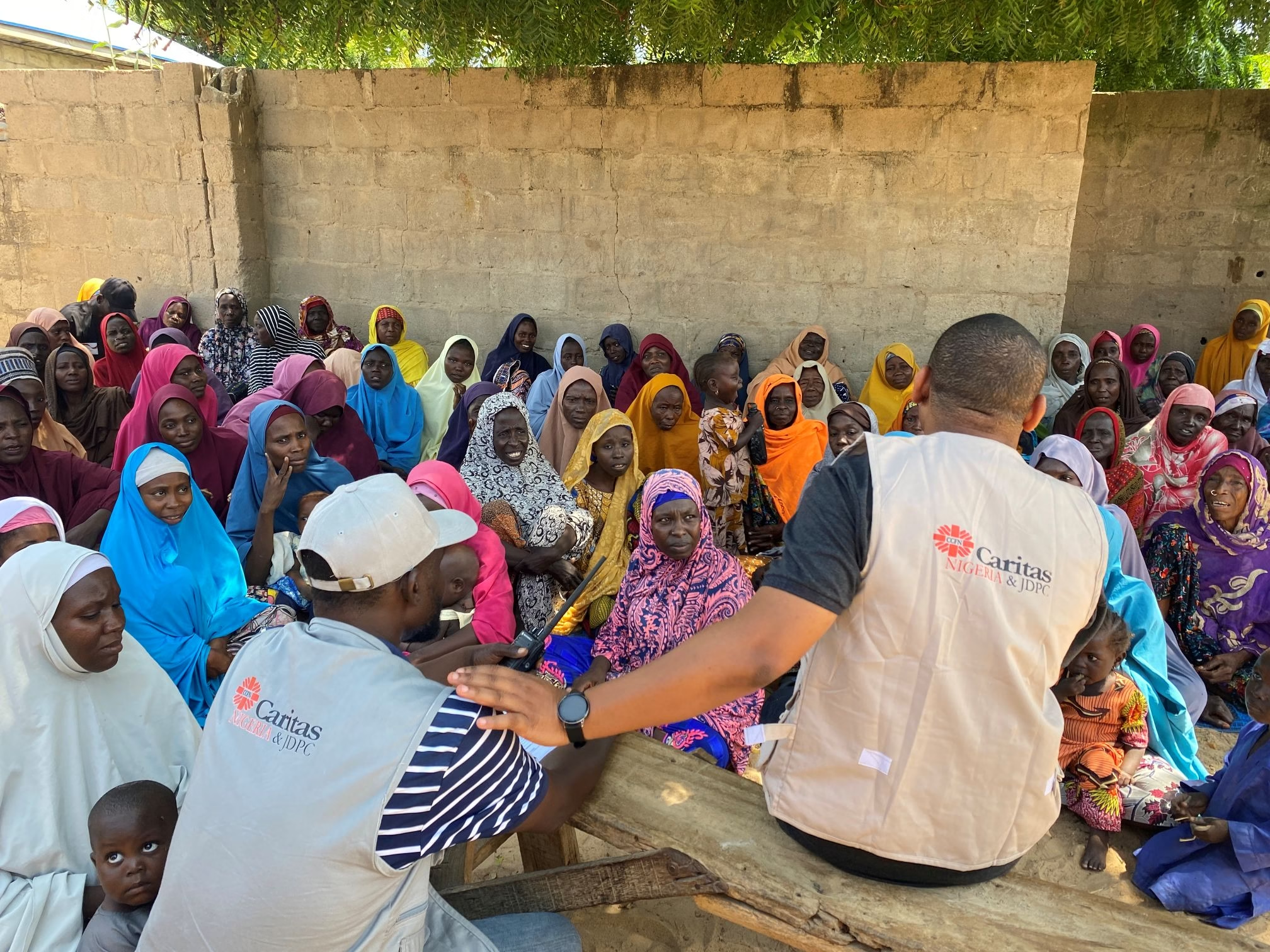
Information
Project Name:
Mental Health and Psychosocial Support Strengthening Resilience
Donor:
Caritas Germany
Location:
Borno
Share:
Phase I (September 2020 – October 2021; No-Cost Extension: November – December 2021)
The pilot phase launched essential mental health and psychosocial support (MHPSS) services in five IDP camps and surrounding host communities across Jere and MMC. With a budget of €170,000, it focused on training 12 lay counsellors, laying the foundation for community-based MHPSS interventions. 435 individuals received direct psychosocial support, while 700 participated in structured occupational therapy activities aimed at reducing stress, promoting healing, and strengthening coping mechanisms in a post-conflict setting. The no-cost extension enabled additional needs assessments and the completion of unfinished pilot activities, establishing a solid base for expansion. Phase I initiated community healing processes, built trust in lay-led psychosocial interventions, and identified structural and service delivery gaps that informed subsequent phases.
Phase II (January – October 2022; Cost Extension: November – December 2022)
With a budget of €186,000, the second phase expanded its reach to three additional communities and included Child Protection and GBV prevention elements. Awareness and visibility efforts were greatly improved through the first MHPSS Conference, which gathered over 120 participants from government agencies, humanitarian organisations, and local community actors. The project expanded its delivery model with 28 peer counsellors and 24 lay counsellors, offering group counselling to 496 individuals and reaching 3,780 people through structured PSS activities. This phase established the project’s presence in the humanitarian coordination landscape, demonstrated its adaptability in new communities, and promoted local ownership of MHPSS and protection-related initiatives. The conference was a key moment for stakeholder engagement and increased institutional visibility.
Phase III (January – October 2023; No-Cost Extension: November 2023 – January 2024)
With a €180,000 budget, the final phase shifted its focus to Urban Displacement and Out-of-Camp (UDOC) populations, employing an open-ended group counselling approach tailored to the complex needs of urban survivors. 781 individuals participated in group sessions addressing chronic stress and evolving protection risks. The project reached 6,226 people through community awareness activities, including 70 individuals with special needs, while 59 teachers and 51 healthcare workers received training in Psychological First Aid (PFA). The no-cost extension facilitated the completion of all planned activities and led to the development of the Salama Centre 7-Year Strategic Plan. This addressed critical service gaps for underserved UDOC populations and strengthened frontline support systems by training teachers and health workers. It ensured sustainability through long-term strategic planning and positioned the Salama Centre as a resilient anchor for future MHPSS programmes in Northeast Nigeria.
Success Stories




